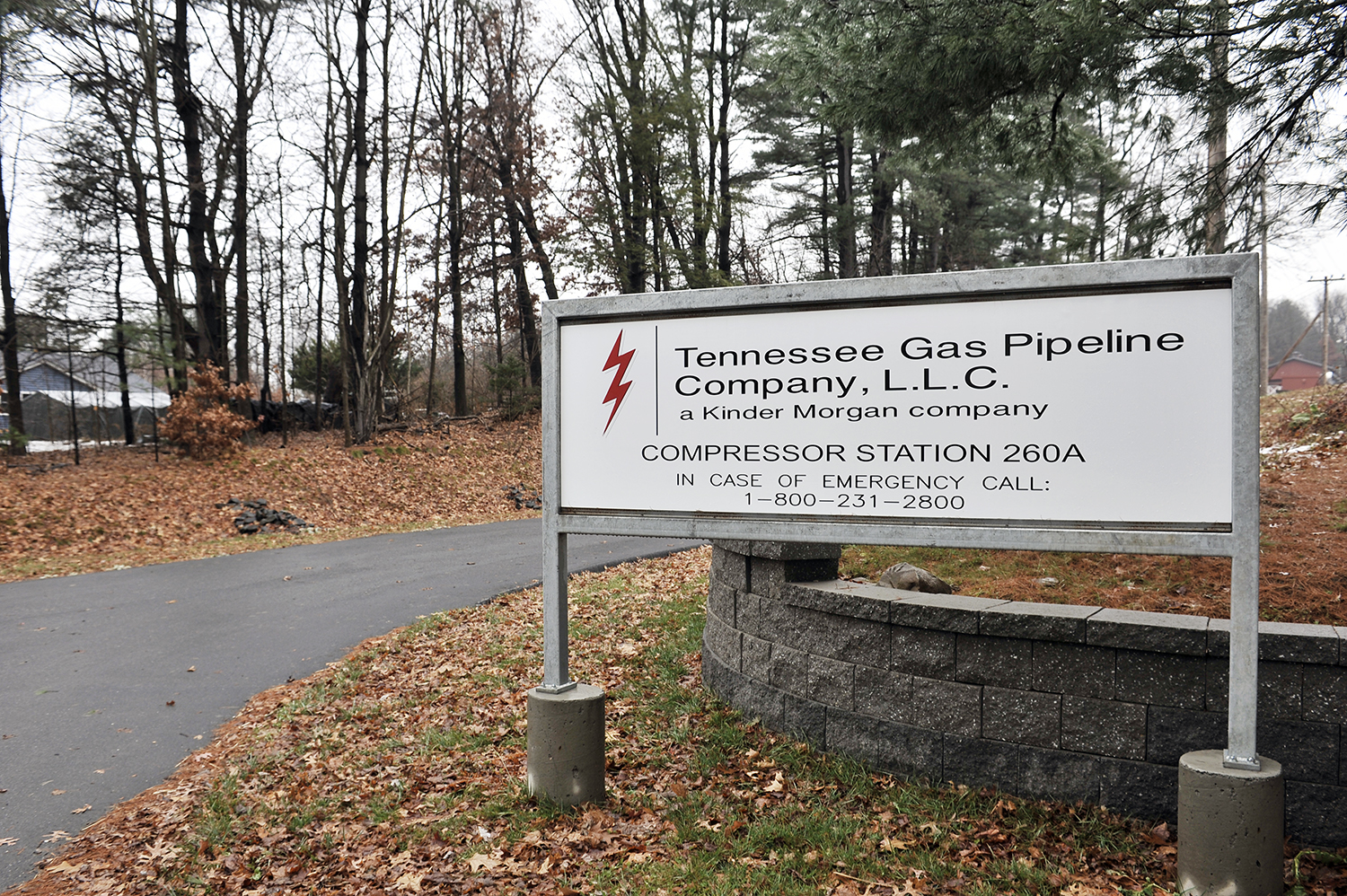SOUTHWICK – A hot-button issue in western Mass. recently has been the proposed implementation of a natural gas pipeline through Franklin County.
The proposed line would also run through numerous towns in New Hampshire en route to the Middlesex County town of Dracut, a northern suburb of Lowell.
New Hampshire’s congressional delegation has begun calling for an open and transparent process before a final decision is made about the 300-mile proposed pipeline which Texas-based corporation Kinder Morgan wants to construct, about 70 miles of which would run through southern New Hampshire and about 90 percent of which would be along an existing power line corridor.
In letters dated last Wednesday to Kinder Morgan and the Federal Energy Regulatory Commission, Sens. Jeanne Shaheen and Kelly Ayotte and Reps. Frank Guinta and Annie Kuster requested that New Hampshire residents have ample opportunity to express their views.
These letters note that Kinder Morgan filed its latest proposal Dec. 8, which shifts much of the pipeline out of northern Massachusetts into a number of southern New Hampshire towns, from Winchester near the Vermont border, to Salem on the Merrimack River.
In these letters, the delegation requests “that Kinder Morgan provide the public, municipal officials in potentially affected municipalities, and our offices with additional information on the timeline for the current pre-filing phase.” It also urges the company “to extend that timeline to ensure that New Hampshire’s residents have a full and equal opportunity to understand, assess, and comment on this project before any decisions are made finalizing the project or its route.”
While communities in Franklin County and New Hampshire are protesting the proposed pipeline, natural gas pipelines have actually been running through the state for decades, with the Tennessee Gas Pipeline arriving in the mid-20th Century.
Corporations such as Kinder Morgan have been able to make inroads through the Bay State in recent years, taking over 600 miles of the Tennessee Gas Pipeline, over half of the Commonwealth’s 1,235 miles of natural gas pipelines, even establishing an office in Agawam and a compressing station in Southwick.

Opponents of a proposed natural gas pipeline protest on Boston Common across from the Statehouse in Boston in July. Energy company Kinder Morgan has proposed the $3.75 billion extension of its northeast pipeline through Massachusetts and says it will provide clean-burning natural gas to the northeast. (AP Photo/Charles Krupa)
According to Kinder Morgan Communications Director Richard Wheatley, the implementation of the Southwick compressor was part of a system expansion project for two local gas distribution customers with long-term contracts that began prior to the Kinder Morgan, Inc. acquisition of the El Paso Corporation and other subsidiaries, including Tennessee Gas Pipeline Company.
“These acquisitions were completed in May 2012 and the facility, which is driven by electricity to reduce noise, was placed in operation later that year and serves the company’s Northampton lateral,” said Wheatley in an email.
In 2013, Kinder Morgan employed 46 people throughout the Commonwealth of Massachusetts, with a total payroll of $3.6 million and paid approximately $5.85 million in state and local taxes that year.
Russell Fox, chair of the Southwick Board of Selectmen and lifelong town resident, said the Tennessee Gas Pipeline has been a fixture in Southwick since the 1950s.
“We’ve had a good working relationship with Tennessee Gas anytime I was on the Board of Selectmen,” said Fox. “But I certainly understand people’s concern.”
Fox said the pipeline has always been well-maintained and that there is a constant need for energy in the Northeast, a region with some of the highest energy costs in the nation.

Diane Hewitt opens up discussion during the “Stop the Pipeline Statewide Summit” at Montachusett Regional Vocational Technical School in Fitchburg in November. Several hundred people packed the high school auditorium to rally against a proposed pipeline that would carry high-pressure natural gas across northern Massachusetts. (AP Photo/The Sentinel & Enterprise, Ashley Green)
He also believes most people in the town recognize the need, as well.
“Obviously we have people who are environmentally concerned – I think most people are – that things are done properly in that all the necessary safety steps are taken,” he said. “The people that I hear most often are people concerned with energy prices in this area. If we can find a way to get additional natural gas into New England, it can only benefit people.”
For Fox’ colleague, Selectman Joseph Deedy, Kinder Morgan’s impact is much closer to home.
“They bought that land two weeks before my land,” said Deedy, whose Feeding Hills Road business, Moolicious Ice Cream, is located near the pipeline compressor. “It’s an interesting deal. I went to every meeting they had – and they had quite a few – and they’re a bulldozer. You can go to all the meetings you want and protest, but they’re going to come. It’s a privately owned utility.”

Beverly Woods, Executive Director of the Northern Middlesex Council of Governments, Rep. Stephen Kulik, Rep. Sheila Harrington, Sen. Eileen Donoghue and Sen. Jamie Eldridge participate during the “Stop the Pipeline Statewide Summit” at Montachusett Regional Vocational Technical School in Fitchburg in November. Several hundred people packed the high school auditorium to rally against a proposed pipeline that would carry high-pressure natural gas across northern Massachusetts. (AP Photo/The Sentinel & Enterprise, Ashley Green)
Deedy said that the compressor station is near four or five homes, whose residents, he said, are “beside themselves.”
While he harbors no ill will toward the pipeline providers, Deedy acknowledges that living near or owning a business next to, a natural gas line, despite the energy benefits, is not without inconvenience.
“Every once in awhile I’ll get a smell, but overall they’ve been a decent neighbor. When they’re working, they’re over here buying lunch,” said Deedy. “For us, the winter time is noisier because that’s when they have to compress that gas and I guess the reason the compressor was built here was because in Northampton/Easthampton, the pressure wasn’t good enough.”
Deedy concurred with Fox’ assessment of when the Tennessee Gas Pipeline arrived in town and, like his fellow selectman, understands the environmental concerns held by residents of rural Franklin County, who are undertaking what many consider to be an exercise in futility to halt Kinder Morgan’s $4 billion Northeast Energy Direct project, which would transport an estimated 2.2 billion cubic feet of natural gas per day from Pennsylvania shale reserves to Dracut by way of a three-foot wide, 300-mile-long underground pipeline.
“They want to go through people’s backyards and farm fields or wherever else they want to go,” said Deedy. “People were upset here (when the compressor went in), which was why ours has special insulation on the compressor motor, but when they do a blow-off it sounds like Barnes Airport.”
“I don’t want to say it’s great, but other than the noise for the neighbors, if you drove through town, you wouldn’t know it was underneath us,” he said.




